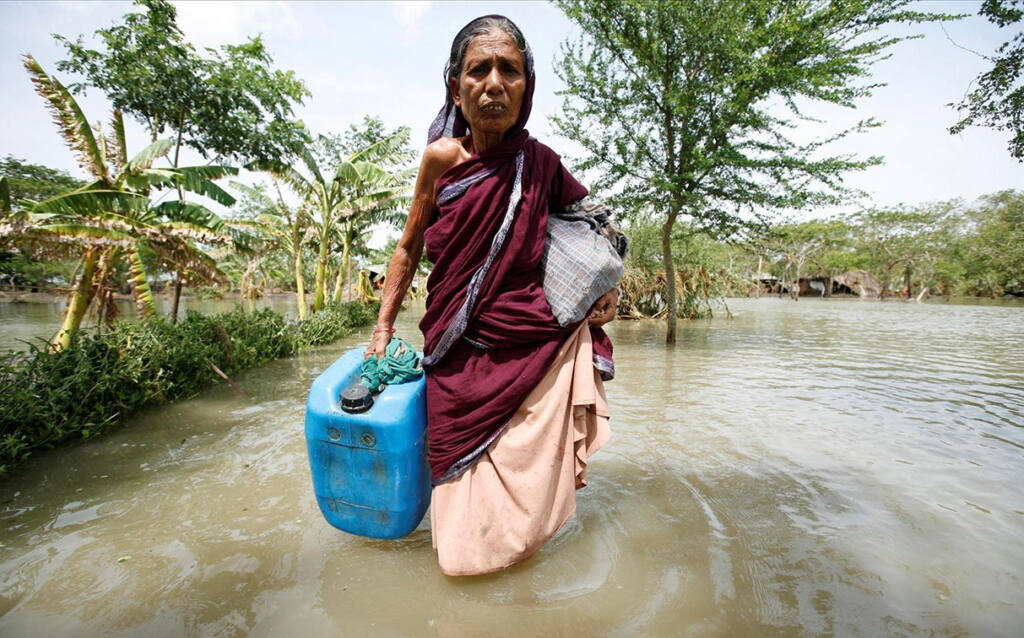WelCom May 2021
We are called to respond to the Cry of the Earth, the Cry of the Poor, and the Cry of the Children. Last year, Pope Francis invited us to celebrate the fifth anniversary of his encyclical Laudato Si’ for a whole year – from 24 May 2020 to 24 May 2021. “For we know that things can change” – LS 13.
Laudato Si’ Week 16–24 May 2021, will be a time to reflect on what the Covid-19 pandemic has taught us and prepare for the future with hope.
In a recent webinar, republished below, Peter Healy sm of Ōtaki and a member of the Marist International Ecology Commission, writes about a report presented for the Marist International Family on the Laudato Si’ goals and the seven-year action plan for implementing Laudato Si’. The presenter was Salesian priest Fr Josh Kureethadam from the Vatican’s Dicastery for Integral Human Development.

At the beginning of his presentation Fr Josh Kureethadam talked about St Francis hearing the call of God to rebuild and repair the Chapel of St Damiano and eight centuries later another Francis (Pope Francis) is sharing with us an equally profound call, to go and repair our common home.
Laudato Si’ reminds us that human life is grounded in three fundamental intertwined relationships: with God; our neighbour; and our planet home.
Within these three sets of relationships there is exchange, dependency, meaning, limits and mutual benefit.
The need for action is urgent. The cry of our planet home is echoed in many scientific reports. Fr Josh sited the Planetary Boundaries Model as a key warning from the scientific community. We have crossed the safe threshold of three of the nine planetary boundaries. Carbon and methane in our atmosphere is beyond a safe limit, bio-diversity loss in the form of habitat destruction is a mass extinction event and the nitrogen cycle has exceeded a safe flow boundary in many parts of our world. When planetary boundaries are crossed, tipping points are reached and unprecedented changes and chaotic patterns emerge. Creation is a gift and promise covenanted to the human community. It is an invitation to live within limits and boundaries if we are to fulfil the promise
of Creation.
The Cry of the Poor is coming to us in the displacement of peoples, in uncertain futures around food security, health, peace, employment and education. Women and children suffer most here and the security of future generations is paramount.
We have less than a decade to act if we are to avoid irreversible and catastrophic changes to the life systems of our planet home.
The call of the scientific community, the cries of people, planet and future generations, lead to an Action Plan proposed by the Dicastery. It is designed to create communities around the world that are sustainable and just in the spirit of the integral ecology of Laudato Si’. It is intended to embrace every aspect of the life of Catholic communities around the world. Families, dioceses, parishes, hospitals, schools and universities, Catholic organisations and religious orders are called to active involvement in a plan of action towards a life sustaining world. In the spirit of Laudato Si’ this plan is for all people of good will, and so it is an ecumenical and inter-religious call.
The seven goals of Laudato Si’ are:
- the Cry of Earth,
- the Cry of the Poor,
- Ecological Economics,
- Simple Lifestyles,
- Ecological Education,
- Ecological Spirituality; and
- Community Involvement and Participation.
So we are invited to listen to our planet home as she speaks to us in storm, pollution, sea-level rise, ice melt, uncertain weather patterns, habitat loss and all manner of harms and declines. We are invited to hear the cry of the poor for housing, meaningful and properly paid work, food security, adequate benefits and racial justice, we are encouraged to trade and invest ethically, to financially divest and encourage sustainable energy systems. We are invited to examine our lifestyles and to reduce, recycle, reuse and refuse, to re-design curricula in schools for the promotion of ecological vocations. We are encouraged to evolve spiritually in a recovery of God’s vision and promise of Creation, to have better contact with God in the natural world, to cultivate a spirit of wonder, praise, joy and gratitude, to create ecological retreats, prayers, spiritualities and catechesis. In a spirit of community involvement, we are invited to find ways to advocate for the natural world locally, regionally, nationally and globally. We are encouraged to find a new belonging in local territories and neighborhoods.
On 24 May 2020 we were all invited into a year-long process of making a plan for our sector group in relation to the Laudato Si’ Goals, we then enter a five-year implementation process followed by a sabbatical period of assessment and hopefully celebration.
The Dicastery will create a supporting website in conjunction with the Global Catholic Climate Network. The website will be in nine languages and will have working groups to support of each of the Laudato Si’ Goals. The hope is for annual exponential growth in uptake from various Church sectors. Such a mobilisation will be sustained from the base and peripheries of our global faith community.
The seven-year Vatican Dicastery Integral Human Development Plan can be found here:
https://www.humandevelopment.va/en/news/2020/laudato-si-special-anniversary-year-plan.html